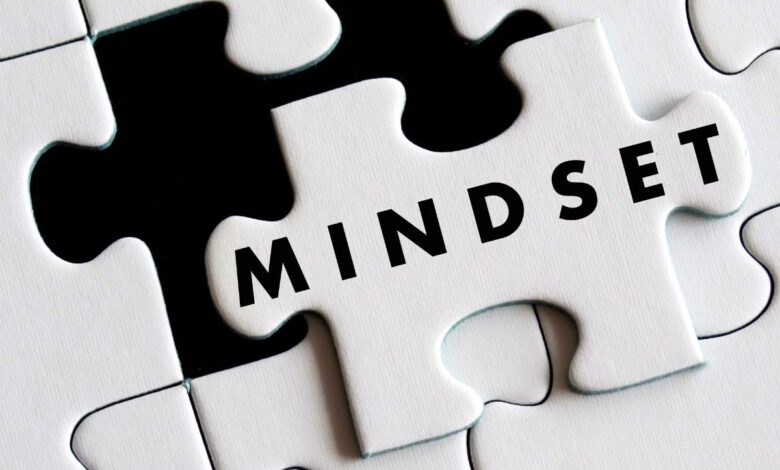Mastering Your Mindset: Building a Strong Character from Within

Building a strong character can be one of life’s greatest challenges. It requires the mastery of certain skills, such as resilience and self-control, that don’t always come naturally to us. But with dedication and perseverance, anyone can develop these qualities and become a person of great strength and integrity. In this article, we will explore how you can build a strong character by setting yourself up for success through proper planning and goal setting. We’ll also discuss ways to stay motivated while working toward your goals, so you can reach your fullest potential as an individual. So let’s get started on this journey toward personal growth and development!
Building Character
Character building is an important process that requires dedication and thoughtfulness. It starts with understanding our principles, values, and beliefs; looking within to determine what we stand for and strive for in life. We need to ask ourselves questions such as: What do I value most? How do I want to be remembered by others? Answering these questions helps us formulate our identity and shape who we are as individuals.
It also involves actively seeking out challenges and opportunities to grow. This could mean taking on a new responsibility at work or pushing ourselves outside of our comfort zone in order to learn something new. In any case, it’s essential to face difficult tasks head-on while focusing on the bigger picture and believing in ourselves. Doing this will help build resilience so that when adversity strikes, we can respond with strength and courage instead of fear or doubt.
Moreover, developing strong relationships is another way to build character. We can foster meaningful connections through acts of kindness towards those around us, being open about how we feel and listening attentively when someone else speaks. These small gestures have the potential to bring people closer together which leads not only to personal growth but collective progress too.
Building character isn’t always easy but if done right, it has lasting benefits that extend far beyond the individual level – creating harmony rather than chaos in society as a whole. With that said, now let’s turn our attention towards developing a positive attitude.
Developing A Positive Attitude
Developing a positive attitude is essential for building character. It’s not always easy, but with the right mindset, you can create an outlook that will serve your overall goals. Attitude has everything to do with how we approach life and the challenges it brings our way. Having a good attitude involves being open-minded and willing to learn from mistakes. A positive perspective also means focusing on solutions instead of dwelling on problems. Staying away from negativity will help build resilience so you can face difficult situations with confidence. Taking time out each day to practice self-care like exercising or meditating can help maintain a healthy outlook as well.
By developing a positive attitude, you become better equipped to handle any situation life throws at you while still staying true to yourself. Your newfound strength of character allows you to make decisions that benefit both yourself and those around you in meaningful ways. You’ll be able to stand up for what’s right and important even when times are tough, making sure your values remain intact no matter what comes your way. Understanding yourself and taking ownership of who you are helping give clarity to the importance of having a strong character built upon positivity and integrity.
Understanding Yourself
Self-reflection and understanding are key to building a strong character. To get in touch with our true selves, we must look inward and recognize both what makes us unique and how our thoughts and feelings affect who we are. Taking the time to assess our values, beliefs, desires, strengths, and weaknesses is essential for personal growth; it’s like taking an inventory of ourselves so that we can move forward in life more confidently.
Although introspection requires effort on our part, this process will help us understand why certain things happen or why we behave in certain ways. We may find out that there’s something within ourselves that needs improvement or change – being able to identify these areas can provide clarity about which steps need to be taken next. In addition, developing self-awareness can also lead to greater empathy toward others. This knowledge allows us to view situations from different perspectives, fostering compassion instead of judgment.
Learning about oneself gives us control over our own lives; it enables us to make decisions based on facts rather than assumptions or generalizations. With such awareness comes power: the ability to take responsibility for our choices while staying true to who we are as individuals. Once we have a better sense of ourselves, making the right choices becomes easier because we know what matters most – and what doesn’t – when determining the best course of action.
Making The Right Choices
Life is full of tough decisions, and it can be hard to make the right ones. It’s like walking a tightrope every day – one wrong move and everything could come crashing down. Navigating our way through life requires wisdom in order to make sound choices that will steer us on the path toward building a strong character.
We have to trust our gut instinct when faced with difficult decisions, but at times we may need all the help we can get from those around us who are more experienced or knowledgeable in certain areas. Everyone has their own unique set of experiences they bring to the table; tapping into these resources allows us to gain valuable insight before making a decision. In other words, two heads are better than one!
No matter what choice you make, take responsibility for your actions. Whether it was the right call or not, accept ownership over the consequences and learn from them so as not to repeat any mistakes again in future scenarios. This type of self-reflection helps build resilience and encourages growth while nurturing a strength of character over time.
Making thoughtful choices is just the beginning though – managing stress and emotions also plays an important role in developing good character traits.
Managing Stress And Emotions
Let’s face it: managing stress and emotions can be a real drag. We all have times in our lives when we feel overwhelmed, frustrated, or just plain angry. But how do we manage these feelings without letting them take over? Well, the key is to recognize that these feelings are normal, and then figure out how to cope with them constructively.
Satirically speaking, it might help if you picture yourself as an emotional traffic cop – directing your thoughts and actions towards healthy outcomes instead of unhealthy ones. This means recognizing which behaviors will lead to positive results and staying away from those that will not. For example, rather than yelling at someone who has angered you, look for ways to resolve the conflict peacefully by talking through the issue calmly.
At times like this, it can also be useful to practice self-care techniques such as deep breathing exercises or mindfulness meditation. These activities give us time to check in with ourselves and address any unhelpful patterns of thought before they spiral into something more destructive. Taking a break from whatever situation is causing distress can also help reset our mental state so that we’re better prepared for constructive problem-solving.
By taking responsibility for our own emotions and working on effective strategies for dealing with them, we can help reduce stress levels and create healthier relationships with those around us. So let’s get busy mastering our moods!
Learning From Mistakes
We all make mistakes in life, but it is how we choose to learn from them that can truly build a strong character. Imagining ourselves as students of our own lives, each misstep becomes an opportunity for growth and development. When the inevitable happens and something goes wrong, take stock of what happened, recognize any lessons to be learned, and then make adjustments accordingly. No one ever said learning was easy, but it will help us become more resilient when facing future challenges.
By accepting responsibility for our errors without judgment or blame, we are taking ownership of our actions which can ultimately lead to greater self-confidence. There’s also no harm in asking someone else’s opinion if needed – after all two heads are better than one! Every person has their own perspective and experiences which can provide valuable insight into situations. Rather than dwelling on past mistakes, however, try to focus on moving forward with newfound knowledge and understanding.
In order to successfully navigate life’s ups and downs, developing a sense of inner strength and perseverance is essential; this begins by practicing self-discipline.
Practicing Self-discipline
The process of developing a strong character starts with self-discipline, the kind of discipline that can only come from within. It’s not easy to practice this type of discipline and maintain it over time, but if one is serious about building their character, then one must be willing to put in the hard work. Alluding to the famous quote by Aristotle – “We are what we repeatedly do. Excellence, then, is not an act, but a habit” – an individual has to have the determination and focus to stick with their commitments no matter how difficult or challenging it may be for them. This could mean setting aside time each day for exercising, creating new routines around healthy eating habits, or devoting more effort towards your studies or career goals.
With consistent practice and dedication comes clarity of thought on attaining personal objectives; having a clear understanding of our actions gives us better control of ourselves and motivates us further down the path toward success. Practicing self-discipline helps us stay focused on our long-term goals as well as strengthens our willpower which in turn increases resilience against bad decisions and temptation. Ultimately mastering self-discipline leads us closer to developing integrity; something that’s fundamental in constructing a solid character foundation.
Developing Integrity
Developing integrity is a critical part of building a strong character. Integrity involves being consistent in one’s thoughts, words, and actions, even when no one is watching or judging. It means having the courage to do what’s right regardless of potential personal repercussions. In order to cultivate real integrity, it’s important to reflect on your values and goals regularly; ask yourself how you can stay true to these ideals in any given situation. Doing so requires that we keep an open mind and remain aware of our own biases.
Moreover, developing integrity also involves taking responsibility for your mistakes and learning from them instead of dwelling on blame or regret. We must be honest with ourselves about our weaknesses as well as our strengths, allowing us to make amends where needed and create greater self-awareness. This will help build resilience while encouraging growth personally and professionally.
Being respectful and kind towards others is another key element of cultivating good character.
Being Respectful And Kind
Respect and kindness are the building blocks of strong character. They can bring out the best in people, just like a ray of sunshine that chases away dark clouds. We need to be respectful not only with our words but also with our actions – showing consideration for others and treating them as we would want to be treated ourselves. It is important to remember that everyone has their own story and background so it’s vital to open your heart and show empathy towards others.
Through respect and kindness, we build trust and understanding among each other. This helps us form meaningful relationships which allow us to nurture growth within ourselves and those around us. As they say, what goes around comes around, so if you give respect you get respect back!
As well as being kind-hearted towards others, respecting yourself is equally fundamental when developing strong character. Know your worth, set boundaries, and take care of yourself – these all help to create a healthy self-image which will help you on your journey of personal development. Therefore, let’s all pledge together today to spread more love and peace by being respectful and kind!
Accepting Responsibility
When it comes to building a strong character, accepting responsibility is an essential part of the process. Taking ownership of your actions and decisions can help you gain respect from others while also teaching you how to stay accountable for yourself. It’s important to recognize when things haven’t gone as planned and take steps to address them in order to learn and grow. Additionally, learning to apologize when necessary and forgive those who have wronged us builds our capacity for empathy and understanding, which are key components of any healthy relationship.
It’s often tempting to pass the blame onto someone else when something goes wrong but taking on that responsibility teaches us valuable lessons that will serve us well in life. When we make mistakes or fail at something, it’s easy to feel embarrassed or ashamed but accepting this failure with grace allows us to move past it without letting negative feelings linger for too long. Overall, being willing and able to accept responsibility is essential if we want to build meaningful relationships based on trust and mutual respect.
Developing confidence then becomes easier since we know ourselves better through times of difficulty.
Developing Confidence
Confidence is the cornerstone of success. It is the bedrock upon which we build our dreams and aspirations, making it an essential part of building a strong character. Without confidence, achieving anything in life can be incredibly difficult; developing this trait should not be taken lightly.
To grow in confidence, start by looking inwardly and focusing on what makes you unique or special.
Celebrate your talents and successes no matter how small they may seem – recognize that everyone has something to offer! Don’t compare yourself with others or let criticism bring you down – instead, concentrate on the things you do well and strive to improve upon them day by day. Take risks and don’t be afraid to make mistakes – embrace failure as an opportunity for learning and growth.
Although developing self-confidence isn’t easy, it’s totally worth it when it comes to realizing your potential. In fact, having faith in yourself will open up new possibilities both personally and professionally as it gives you the courage to take action without fear of judgment from others or feeling inadequate about where you are currently in life. With greater self-belief comes liberation, allowing us to pursue endeavors that were once thought impossible before!
Making bold steps towards personal development is key here: setting goals and defining what steps need to be taken in order to achieve them help create momentum for further progress along our journey toward becoming confident individuals who feel ready for whatever life throws at them…
Setting Goals And Achieving Them
The process of building a strong character involves more than just developing confidence. It also requires setting goals and achieving them. But how do we go about doing this?
Achieving our objectives starts with the ability to recognize what is meaningful or important to us, as well as being honest with ourselves when assessing our strengths and weaknesses. We must then identify achievable goals that will help us realize these ambitions, and have an appropriate timeline for completion. To be successful in this endeavor it’s important to create logical steps towards each goal, breaking larger achievements into smaller ones that are easier to manage.
Having these aims can bring clarity and focus to our lives; they give us something tangible to work toward while providing a sense of accomplishment whenever milestones are reached. Additionally, keeping track of progress helps ensure momentum is maintained until all targets have been met. This type of discipline not only develops strength of will but reinforces positive habits which can lead to further successes down the road.
By establishing attainable goals and working hard towards their realization, we increase self-esteem and build a foundation for success – skills that can open up doors previously closed off due to insecurity or lack of direction. With healthy ambition comes increased enthusiasm, creativity, and effectiveness in daily life – enabling us to take on new challenges while continuing on the path toward personal growth.
Transforming aspirations into reality brings immense satisfaction; through such efforts, we stand stronger in conviction and character with every step (or leap) forward taken.
Building Healthy Relationships
Relationships are the building blocks of a strong character, like mortar binding bricks together. They help us grow in ways we might not have been able to on our own. Good relationships open us up to new experiences and opportunities; they also provide support when times get tough. Building them well is an essential part of strengthening one’s character.
When starting out with any relationship, it’s important to establish trust and respect early on.
Communication is key here: taking time to talk about expectations for both parties helps set a foundation for understanding between each other. Being honest and vulnerable can be difficult at first, but opens up pathways for meaningful conversations that will strengthen the bond even further.
It’s also important to remember that relationships require effort from both sides – no matter how close you may feel, if one person isn’t putting in their fair share then it could mean trouble down the line. Making sure your partner feels heard and cared for allows a relationship to flourish into something special over time.
Good relationships offer many rewards – they create connection, and empathy, and give us someone we can rely on during challenging times or celebrate successes with. Beyond just romantic partnerships too, friendships make life more enjoyable by providing comfort through shared interests, laughter, and companionship. Having healthy relationships in our lives gives us space to lean on others while continuing to build ourselves as individuals too – making them invaluable investments towards creating a strong character overall.
Maintaining good mental health is crucial for successful relationship-building…
Maintaining Good Mental Health
According to the World Health Organization, one in four people globally suffers from a mental health disorder. This statistic is alarming and highlights the importance of maintaining good mental health for everyone.
Good mental well-being starts with understanding our emotions and feelings. Self-awareness helps us identify when we are feeling overwhelmed or stressed out so that we can take steps to calm down.
Emotional regulation techniques such as deep breathing, mindfulness, journaling, and talking to others can all help manage difficult thoughts and feelings in healthy ways.
Creating positive relationships also plays an important role in sustaining good mental health. Surround yourself with supportive people who you can trust and talk openly with about anything; it’s essential to have emotionally safe spaces where love, respect, empathy, and acceptance are encouraged. Additionally, engaging in activities that bring joy like listening to music or taking walks outdoors provides welcome distractions from stress and anxiety.
It’s also beneficial to stay informed by staying up-to-date with news related to your interests but avoiding content that may be too overwhelming or triggering for your current state of mind. Doing this allows us to find a balance between paying attention without becoming overly consumed by negative information which could potentially worsen our well-being. With these tips on how to maintain good mental health, living a balanced life becomes more achievable than ever before!
Living A Balanced Life
Living a balanced life has long been thought to be key to achieving success and contentment. But is it really true that we need to strive for perfect balance? Recent studies suggest the answer may not be as straightforward as once believed.
The concept of living a balanced life implies an equal division of focus between different areas, such as work, family, friends, physical activity, mental health, and personal growth. However, this idea can sometimes lead people to feel overwhelmed and inadequate if they cannot meet all their obligations with ease or are unable to pursue every area at once. While striving for balance is important, it does not have to take up all our energy; instead, we should prioritize certain tasks over others depending on our individual needs and goals.
It’s also essential to remember that balance looks different for everyone: what works well for one person might not suit another’s lifestyle. As such, there is no set formula that guarantees happiness – nor should you compare your progress against anyone else’s standards. The most effective approach could involve being honest with yourself about what matters most to you while leaving space in your schedule for self-care activities like meditation or exercise.
When trying to achieve a sense of balance in life, it’s important to recognize when you’re feeling out of control so steps can be taken toward improving the situation. This could include reaching out for help from loved ones or seeking professional advice where necessary; doing something productive like taking breaks throughout the day; setting realistic expectations and boundaries; and learning techniques for managing stress levels over time.
Ultimately, finding harmony requires each individual to assess their own values and priorities before creating achievable goals tailored specifically around them – because only then will real progress be made towards leading a meaningful existence that feels truly satisfying.
Conclusion
Building a strong character requires hard work and dedication. It is important for us to learn how to use our inner strength, resilience, and integrity in order to become the best versions of ourselves. We must strive to be honest with ourselves as well as others, even when it’s difficult. As the saying goes, “Integrity is doing the right thing, even when no one is watching.” This means that we should remain true to our values and beliefs regardless of who or what stands in our way. It also involves being fair, consistent, and reliable in all aspects of life so that our actions are always aligned with our convictions. With this kind of strength within us, we can build a strong character that will serve us for years to come.




